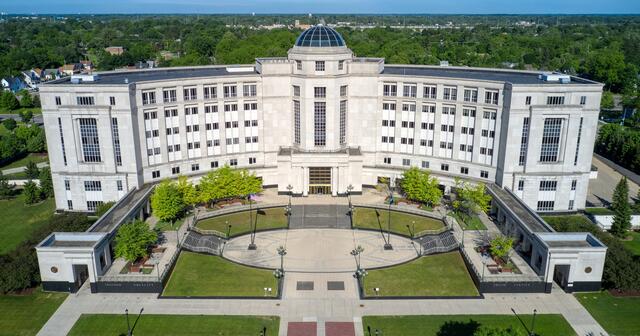
 By Holly Wetzel
By Holly Wetzel
MIDLAND, Mich. — Accessing local government records under the state’s Freedom of Information Act will be more difficult after the Michigan Supreme Court chose not to hear an appeal. In a 5-2 decision, the state’s highest court denied an appeal filed by the Mackinac Center for Public Policy on behalf of a Rochester parent who requested curriculum materials from her school district. Unless the Legislature takes immediate action, this ruling will have far-reaching and negative impacts for public transparency in Michigan.
Carol Beth Litkouhi sought course materials for a high school class titled “A History of Ethnic and Gender Studies.” After reaching out to the teacher and school administrators without success, Litkouhi filed a FOIA request at the recommendation of the district. Despite the course having been taught for more than six months, the district refused to provide all the requested materials. The district argued that it was not required to obtain records held by individual teachers.
“At the heart of my lawsuit was a simple but critical principle: Nothing taught in our schools should be under the cover of secrecy,” said Litkouhi. “If there is any reason why secrecy is desired or needed, that alone is a red flag. The Rochester School Board felt it best to keep classroom materials secret from parents. They took money away from classrooms to fight this fight. Sadly, they have now succeeded in setting a new, disturbing legal precedent.”
In February, the Michigan Court of Appeals ruled in favor of the school district, stating that only records possessed by a public body itself —not by its employees — are subject to FOIA. This decision, now left intact by the Michigan Supreme Court’s refusal to hear the appeal, fundamentally alters the scope of FOIA by putting severe restrictions on how it applies to local government. The records used or created by many public employees may now be kept secret, despite these records being for a public purpose and funded by taxpayers.
“This isn’t just about a single class in one school district,” said Steve Delie, director of transparency and open government at the Mackinac Center. “The implications of this decision are enormous. It means that records held by local government employees across the state — whether they be teachers, police officers or township workers — are likely exempt from public disclosure, making it much harder for citizens to hold their local governments accountable.”
Lawmakers can easily fix this flaw with new legislation. It would only take a single clause including local government employees in the definition of what is considered a public body to close the newly created loophole. This change was previously proposed in a Mackinac Center study which offered amendments to Michigan’s FOIA law to make it work more effectively for the people of Michigan.
“I am grateful to the Mackinac Center for taking on this case pro bono to fight for the larger issue of keeping the public in public institutions,” said Litkouhi. “It seems the FOIA language, rather than the concept is the problem, which should prod the state Legislature to urgently craft new legislation to restore the original spirit of FOIA law and safeguard transparency and accountability in our public institutions.”
Learn more about the lawsuit here.

The Mackinac Center for Public Policy is a nonprofit research and educational institute that advances the principles of free markets and limited government. Through our research and education programs, we challenge government overreach and advocate for a free-market approach to public policy that frees people to realize their potential and dreams.
Please consider contributing to our work to advance a freer and more prosperous state.

Donate | About | Blog | Pressroom | Publications | Careers | Site Map | Email Signup | Contact